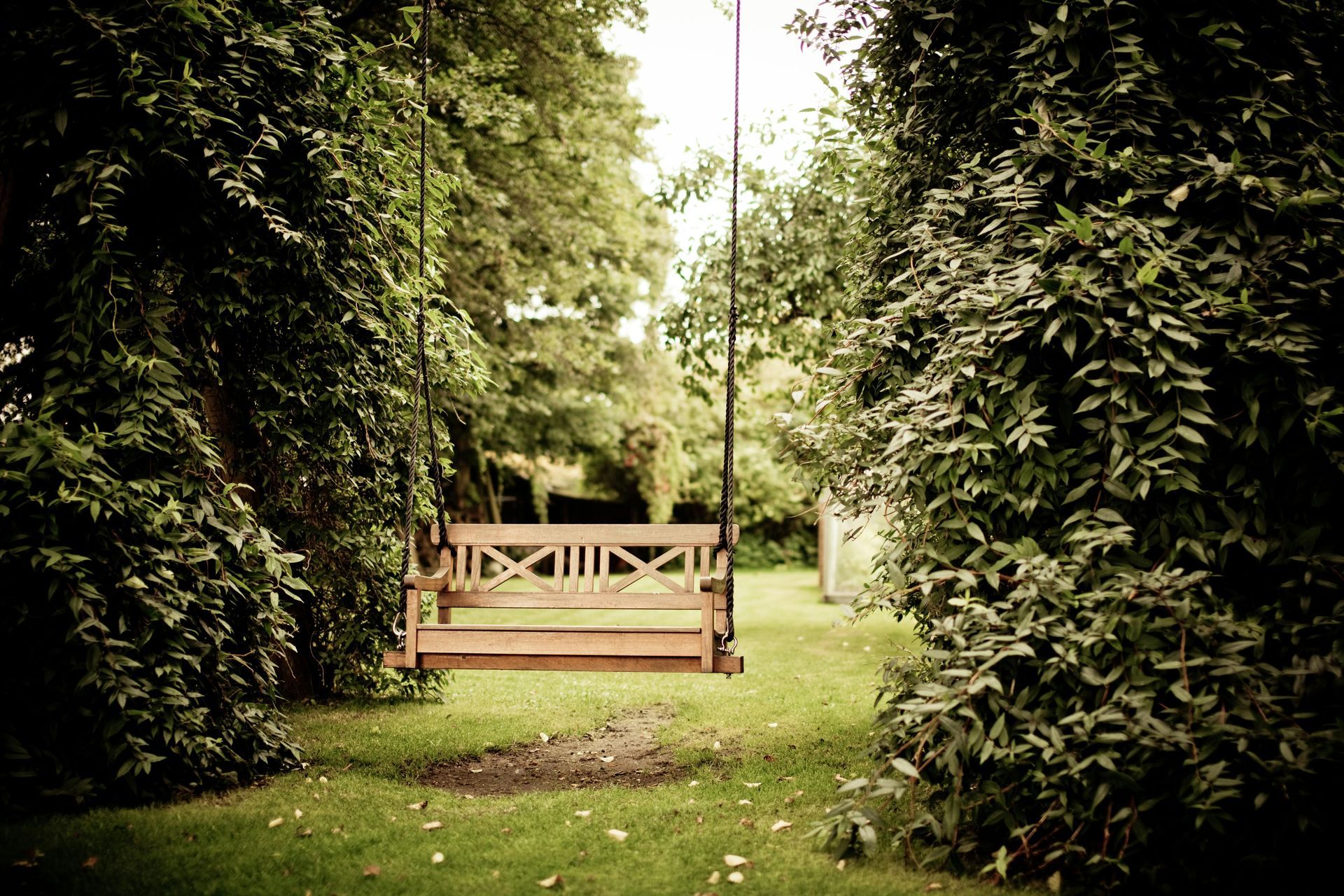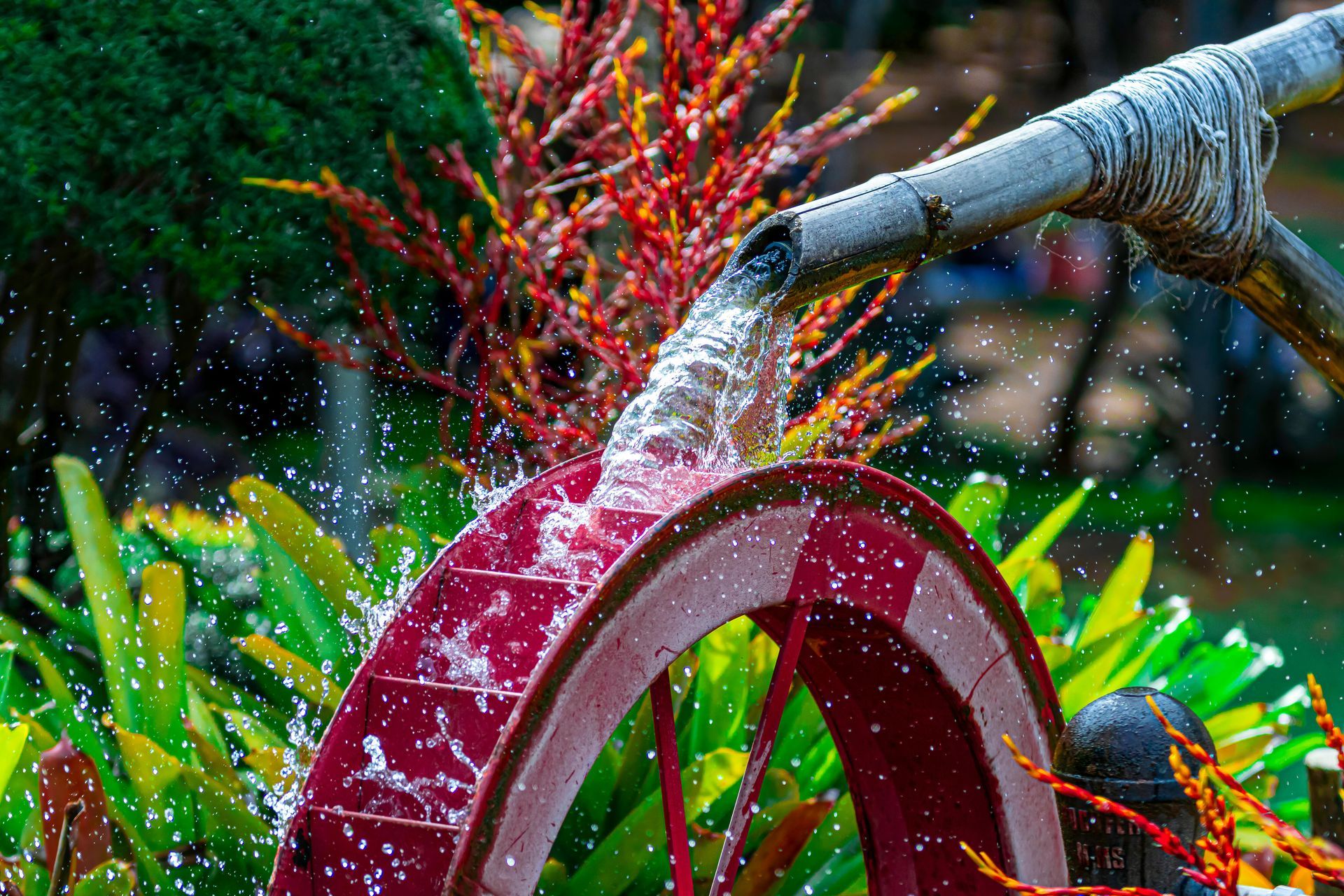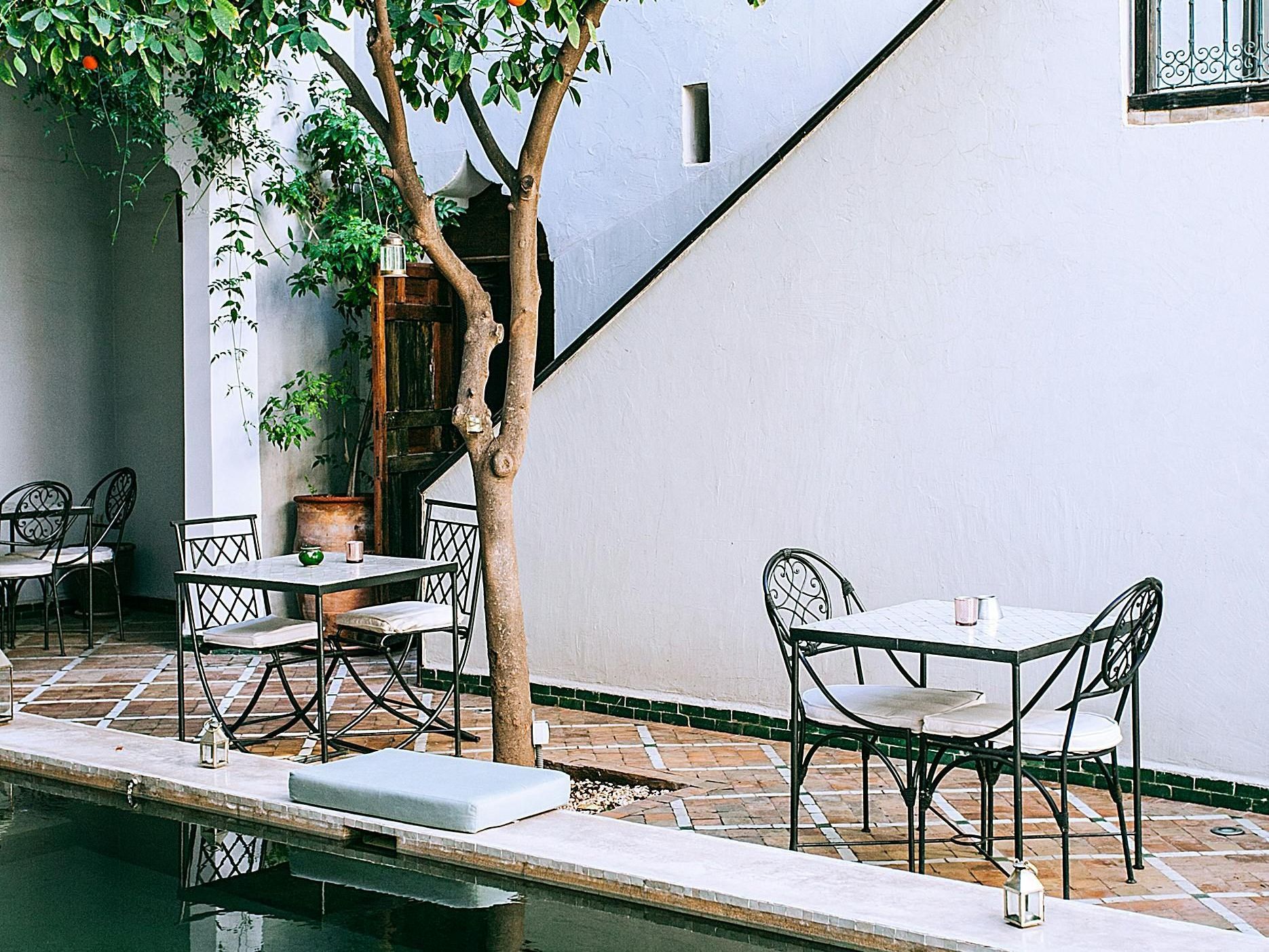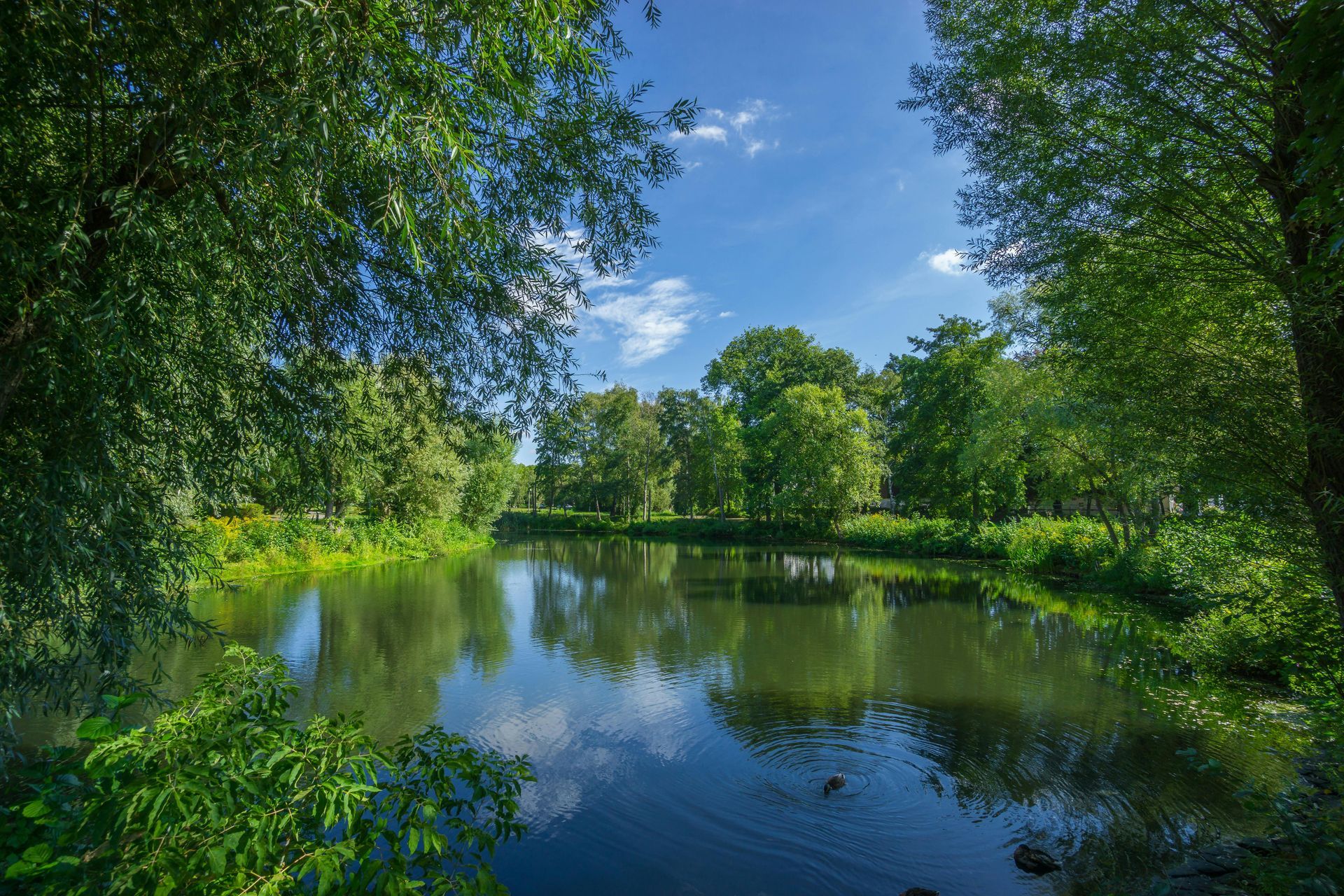Do you need help with creating a meadow?
Create a Thriving Wildlife Haven with a Stunning Wildflower Meadow in Cambridge
Are you passionate about wildlife and looking to create a sustainable, eco-friendly garden? A wildflower meadow is the perfect solution. As a skilled garden designer in Cambridge, I specialize in crafting stunning, biodiverse spaces that not only look beautiful but also provide essential habitats for a variety of creatures.
Cornflower annual meadow Cambridge
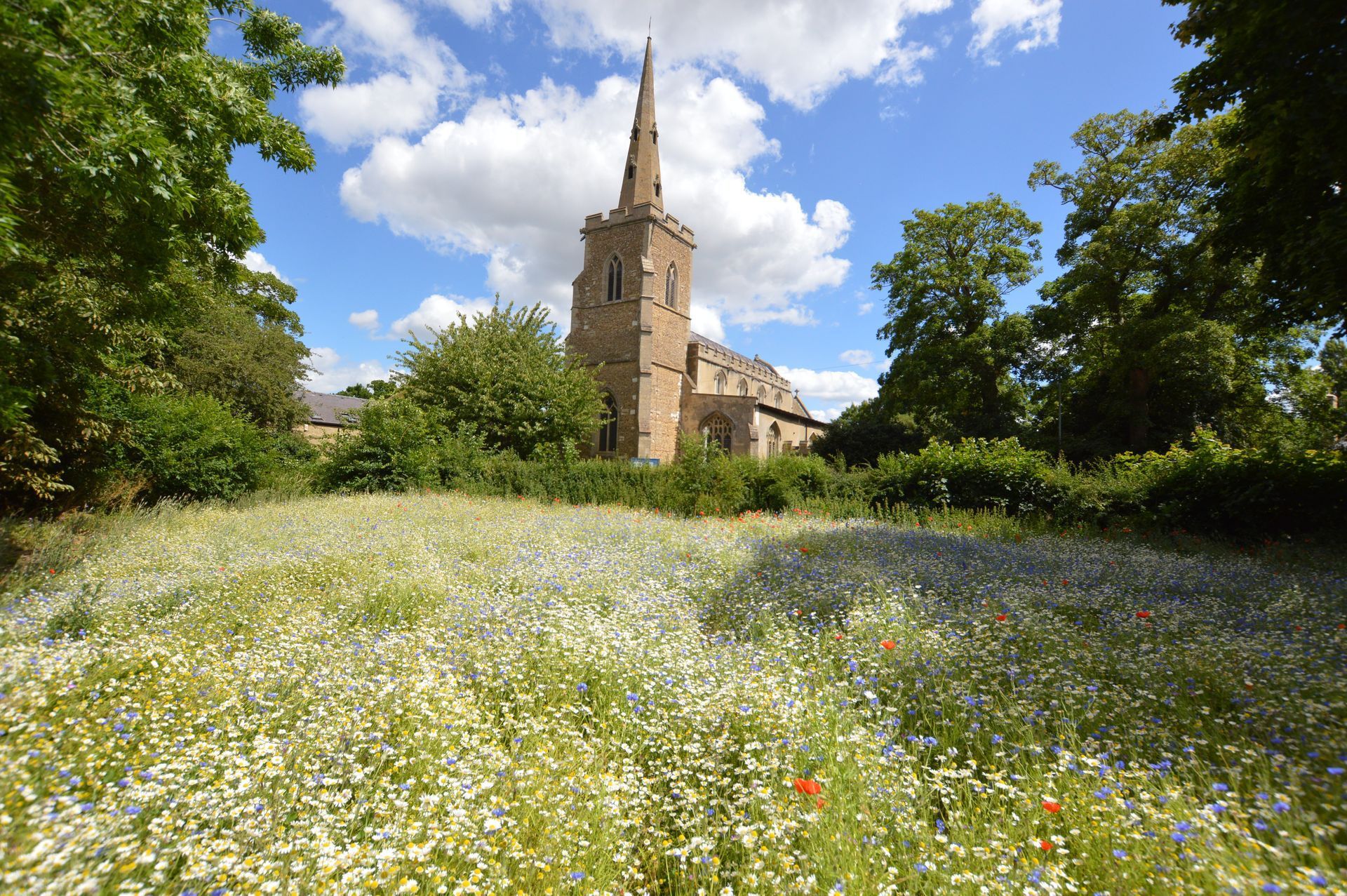
The brief...
The local parish council sought to enhance biodiversity within their parish while increasing forage resources for local wildlife, particularly the swift population that nests in the church spire, visible in the background of the project area. Recognising the importance of supporting these birds, the council made a conscious effort to improve forage availability within the recreation ground, which lies well within the swifts' core sustenance zone. This initiative reflects their commitment to fostering a healthier and more sustainable local ecosystem.
The local swift population has seen a significant increase, thanks to the excellent work of
Action for Swifts, whose efforts have contributed to creating safe nesting habitats and raising awareness about the conservation of this iconic species.
The vision...
Before sowing, soil samples was taken to assess fertility. The results showed high phosphate levels in the soil. To address this, a 10cm layer of topsoil was removed. Cornflower annuals were then sown alongside a native calcareous perennial wildflower seed mix, creating a balanced and biodiverse planting scheme.
Pictorial Meadow Cambridge
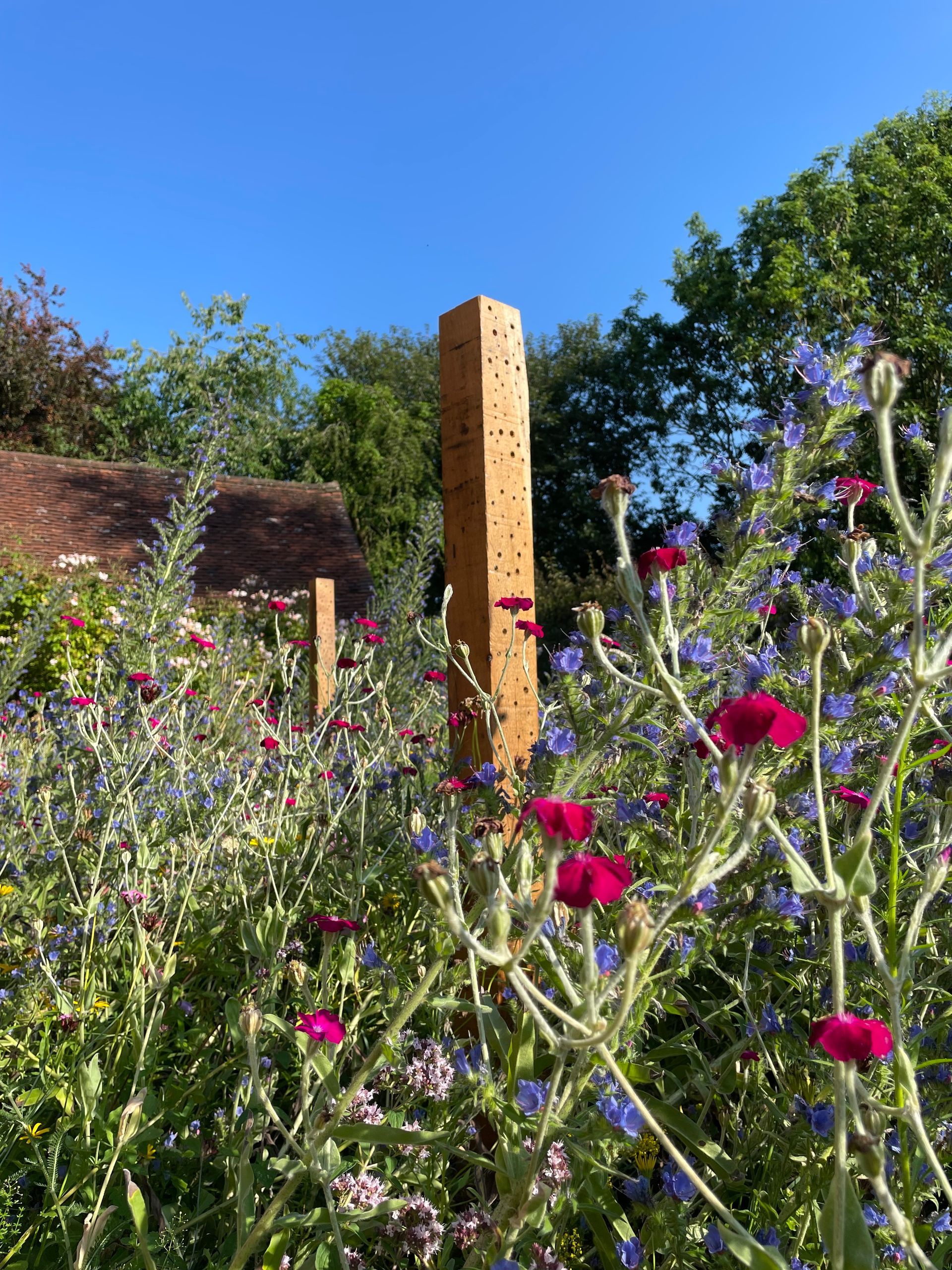
The brief...
Specifying pictorial meadow turf, our retired clients in Cambridge aimed to create a high-impact perennial meadow without the prolonged wait typically required to establish a meadow from seed. It was also important to the clients to provide nectar and pollen resources for as long as possible, particularly into late summer and autumn, to support native invertebrates.
The vision...
In addition to specifying pictorial meadow turf, we incorporated bespoke hardwood oak bee posts to enhance habitat diversity. Beneath the posts, the soil was modified with a brownfield substrate, including crushed concrete, to create optimal conditions for ground-nesting bees and other invertebrates. This approach aimed to replicate conditions similar to an open mosaic habitat, an important UK Biodiversity Action Plan (BAP) habitat.
Calcareous wildflower Meadow
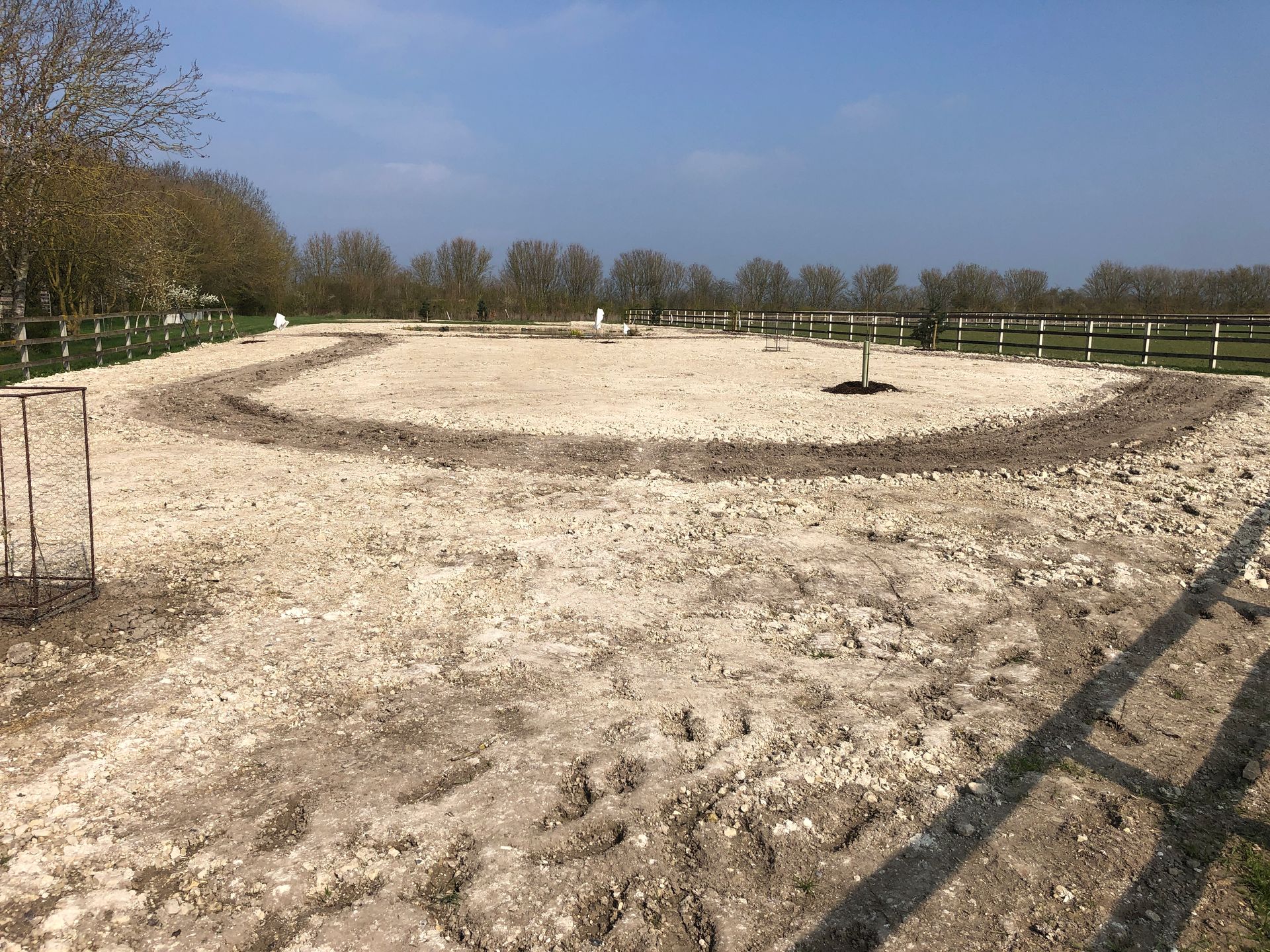
The brief...
To transform a barren paddock field into a biodiverse meadow with minimal input, we utilised UK-native wildflower species, creating a habitat that supports local ecology.
The vision...
Utilising the excavated chalk from the pond, we inverted the soil profile and sowed a calcareous seed mix directly into the chalk. The wildflower meadow was enriched with a variety of seven orchid species. By using the chalk, we achieved slower growth, which, in turn, significantly increased the net gain for biodiversity.
Hertfordshire Meadow
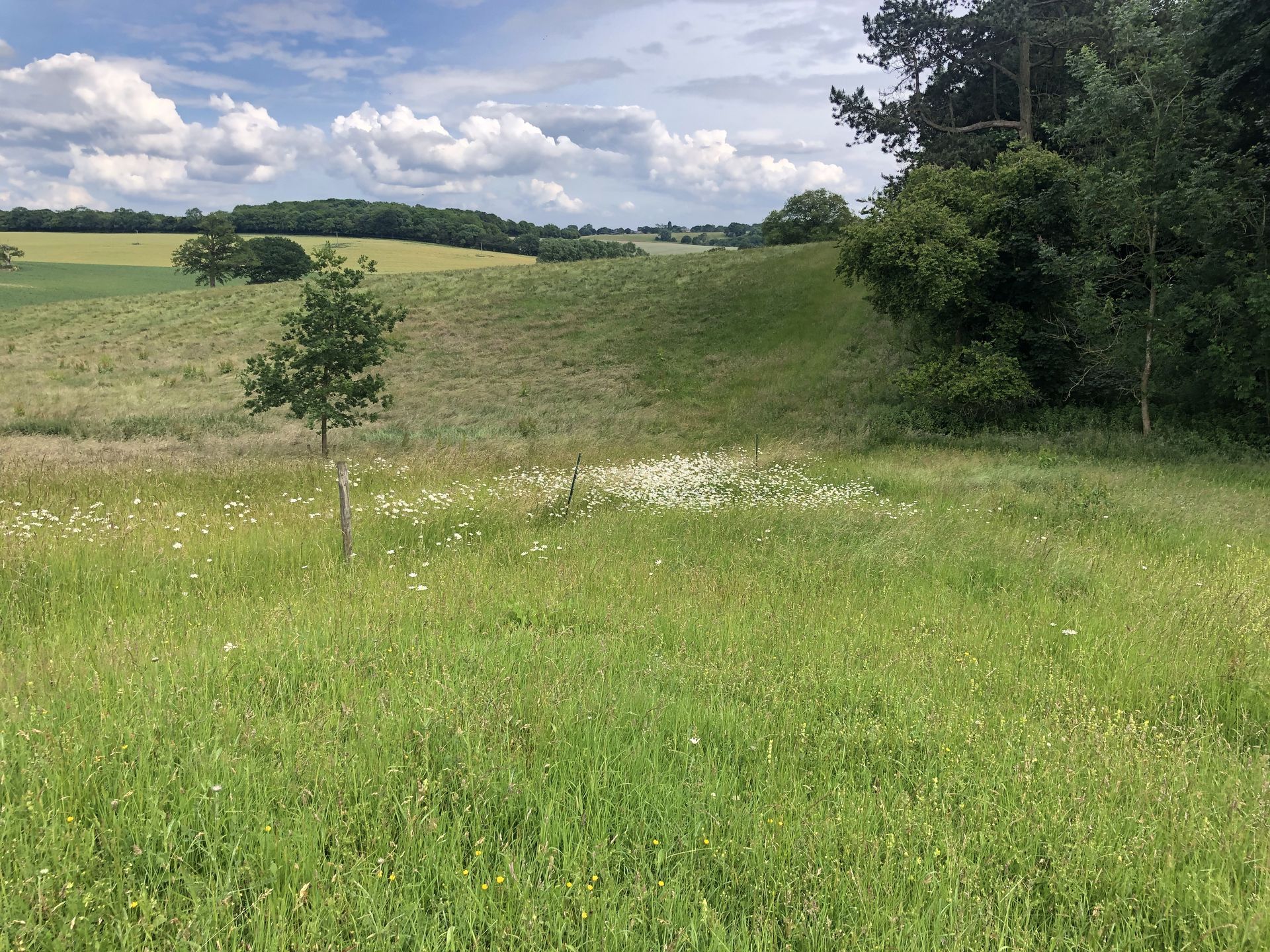
The brief...
Our farmer client in Hertfordshire sought to convert a 1-hectare area of modified grassland into a species-rich wildflower meadow, with the goal of increasing biodiversity on his farm.
The vision...
To help the wildflower meadow establish, the grass was lightly disturbed to create space for new flowers to grow. Once the meadow is established, it is cared for using traditional sheep grazing, following the Lammas Land approach to meadow management, which helps maintain a rich and diverse meadow over time.
Brownfield Meadow
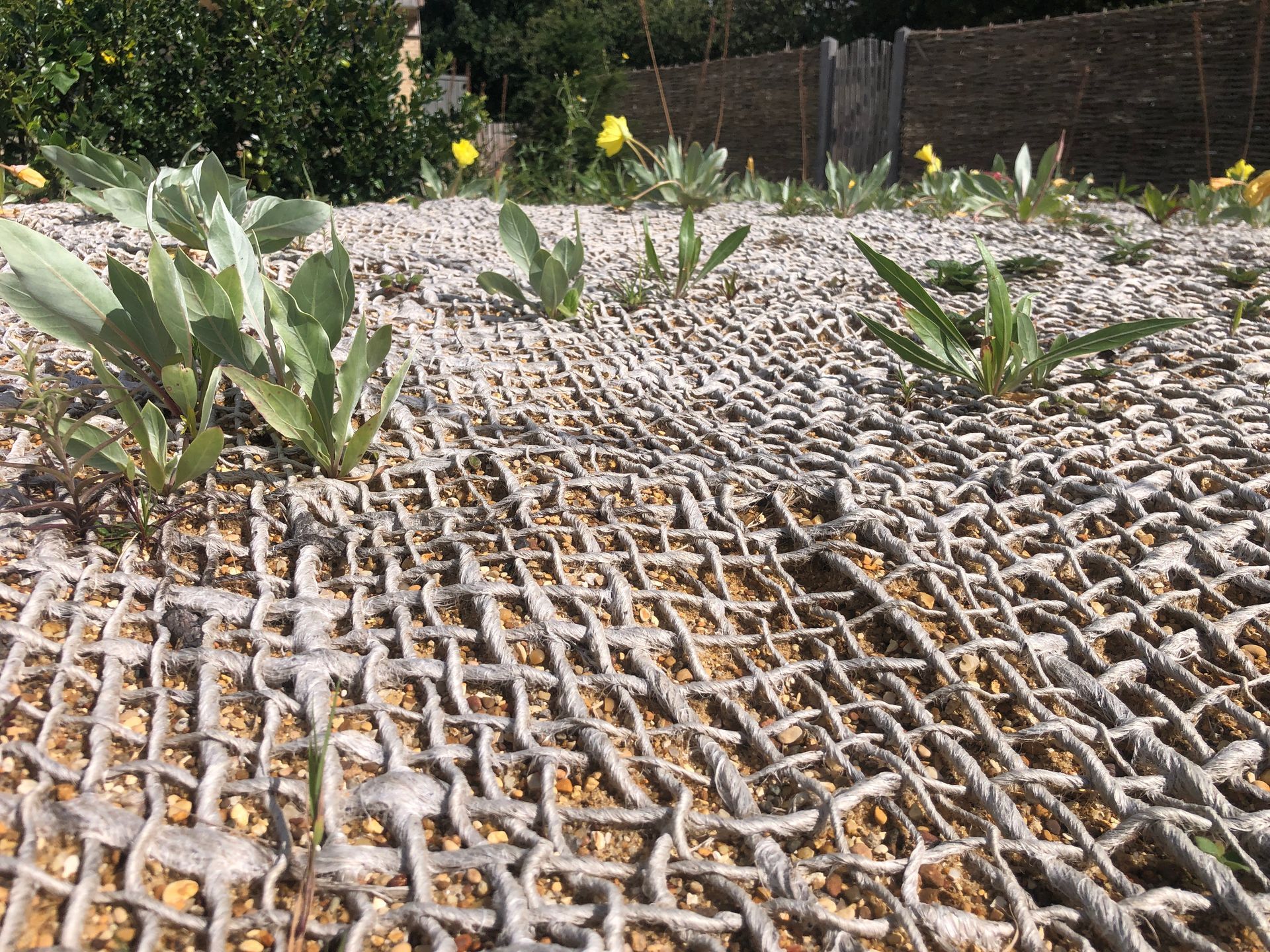
The brief...
The aim was to create a beautiful meadow that is easy to care for while making use of recycled and reclaimed materialsto reduce its carbon footprint. The meadow has also been designed to provide important habitat for ground-nesting insects, as well as nectar-rich flowers that support pollinators well into late summer and early autumn
The vision...
Utilising 140 tonnes of crushed concrete and a 10cm layer of sharp sand, we established brownfield garden conditions. A wildflower seed mix was sown directly into the sand. By varying the depth of the substrate beneath the sand, we created an open mosaic of diverse growing conditions, which in turn supports a wide range of plant communities and enhances biodiversity.
Willingham meadow
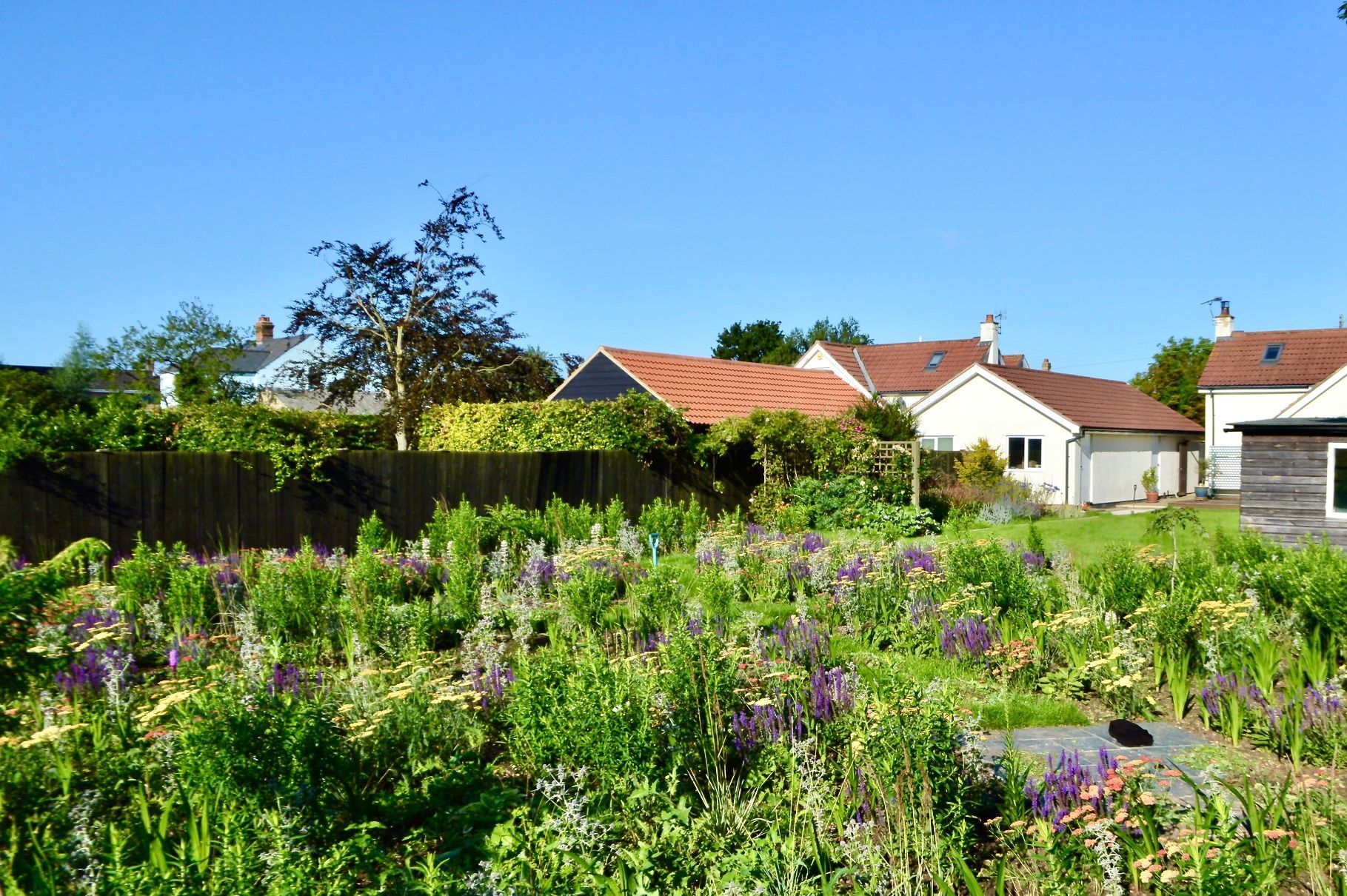
The brief...
The client wanted to have a meadow feel in their garden, however she had some reservation on a traditional wildflower meadow, established by wildflower seed.
The vision...
For the client we created a meadow style planting. We used pre-grown, containerised herbaceous perennials, bulbs and ornamental grass, to give the client the feel of meadow.
